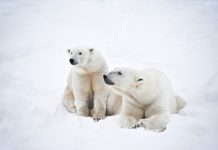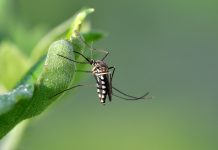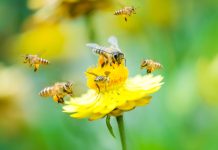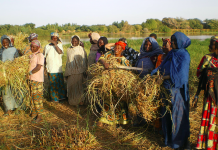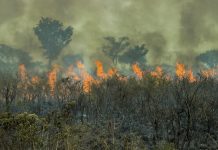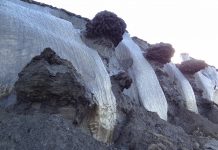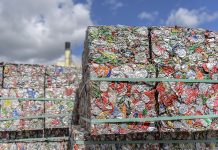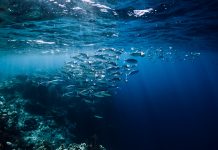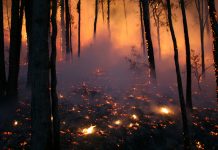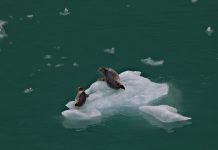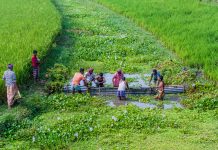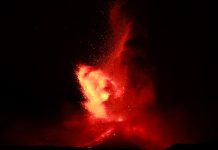Climate change: From deep scientific understanding to practical solutions
Markku Kulmala, from the Institute for Atmospheric and Earth System Research, discusses the ACCC Flagship concerning adaptation to climate change, from deep scientific understanding to practical solutions.
How will a changing climate affect the future of vector borne diseases?
With a changing climate, animal, insect, and plant species will either adapt or die under new environmental and climate conditions - this brings new challenges in the study of vector-borne infectious diseases.
Biodiversity and the functionality of ecosystems
Here, Peter G. Kevan, School of Environmental Sciences, University of Guelph, with Charlotte Coates, explores the issue of measuring ecosystem health (no longer a metaphor) and functionality against biodiversity and how this could be used in environmental policy.
Human-elephant coexistence: Governance, management & the human dimension
Susan Canney, Director of the Mali Elephant Project, WILD Foundation & International Conservation Fund Canada, discusses governance, management and the human dimension of the human-elephant coexistence.
GERICS: Helping decision-makers navigate the IPCC reports
The Climate Service Center Germany (GERICS) is offering support to researchers, policymakers and practitioners in deciphering complex IPCC reports, highlights Scientist Maike Nicolai.
Scientists invent sustainable concrete made from astronaut blood
Scientists at The University of Manchester have figured out how to make sustainable concrete - with a mixture of astronaut blood and space dust.
Geological archives in the Arctic
Ice-rich permafrost deposits will be transformed in large puddles of water in the coming decades, but before this happens, scientists want to collect information to better understand our past and predict our future, as explained by Arthur Monhonval.
Why engagement is key to kick-starting stagnating recycling rates
In this article, Tom Giddings, general manager of Alupro, explores the results of WRAP’s latest recycling tracker survey and explains why consumer engagement is key to kick-starting stagnating recycling rates.
How cities can complement the European Green Deal
Sebastian Marx, Project Coordinator, Eurocities, says that increased commitment to environmental protection in cities will help the EU achieve its green ambitions.
Marine Protected Areas could increase fish population by 400%
The study, published in the Journal of Applied Ecology, used underwater video cameras to observe that Marine Protected Areas increased fish populations by almost 400%.
Implementation of unmanned aerial vehicles for cloud seeding
Eric Frew, University of Colorado, Research and Engineering Center for Unmanned Vehicles, explores the use of unmanned aerial vehicles (UAV) for more effective cloud seeding.
WHO leader says “there is no vaccine for the climate crisis”
A new editorial, published across 220 journals, expresses the climate concerns of healthcare professionals and researchers - with Dr Ghebreyesus saying "there is no vaccine for the climate crisis".
Scientists conduct major review of Amazon forest biodiversity
The study, published in Nature, finds that 95% of all Amazon forest biodiversity have been impacted by forest fires and deforestation.
95% of ocean surface climates could disappear by 2100
The study predicts that if greenhouse gas emissions continue at Representative Concentration Pathway 8.5, then 95% of ocean surface climates could disappear by 2100.
Insect populations halved by LED streetlights
A new study has shown that LED streetlights reduce insect populations by half, making them more harmful than the traditional sodium bulbs.
Post-Rana Plaza: Why is the fast fashion industry still growing?
In an increasingly polluted world, the textile industry is responsible for 10% of all greenhouse gases - so why is the fast fashion industry growing, with no signs of slowing down?
Climate change risks food security for Indigenous Alaskans
Researchers say climate change is impacting food security for Indigenous Alaskans - seal hunting season is shortening in some areas.
Scientists say “substantial heat-related” deaths are increasing
New research, published in The Lancet, highlights that "substantial heat-related" deaths are increasing and global warming continues to impact the most vulnerable people.
Researchers say volcanoes once stabilised Earth’s temperature
The study, published in Nature Geoscience, says chains of volcanoes both created and removed carbon dioxide, stabilising Earth's temperature - but "the results do not mean that nature will save us from climate change”.
Quantum-enabled gas imaging camera to reduce methane leaks
A new quantum-enabled gas imaging camera will help reduce environmentally damaging methane leaks from the oil and gas industry.


